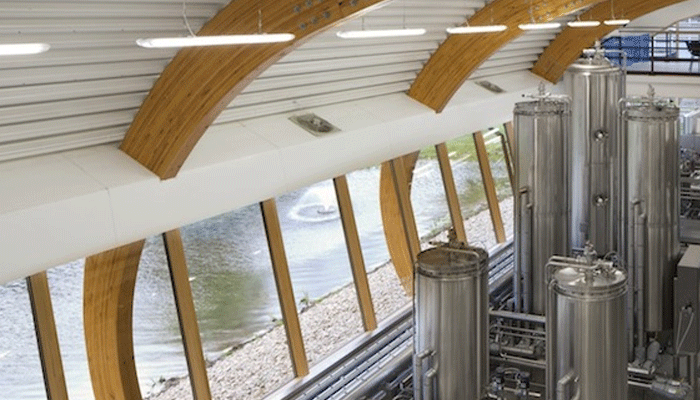Food scientists at the University of Nottingham have launched a year-long project to help brewers across Derbyshire and Nottinghamshire tackle some of the common challenges faced by the industry… increasing productivity and becoming more competitive.
The Food Innovation Centre and the International Centre for Brewing Science, both based at the university, have teamed up to offer a brewery support service that will run in the D2N2 Local Enterprise Partnership area, home to more than 100 small and medium-sized breweries.
Run by brewing expert Rod White, the Food Innovation Centre team is calling on local brewers to come forward if they would like to be considered for free support.
The project will focus on three key issues: helping brewers to reduce raw material costs, supporting cask brewers to create small beer packs in cans or bottles, and reducing energy consumption by showing brewers how they can take advantage of the latest processing techniques.
“The brewing industry has historically been an important sector in the East Midlands and remains a vibrant and innovative part of the local economy,” said Richard Worrall, who heads the Food Innovation Centre.
“However, small and medium-sized brewing enterprises have a number of potential challenges which can hold back growth and productivity, and we’re delighted to be launching a special project to help local brewers. Like many sectors, the brewing industry has been affected by the coronavirus pandemic and we hope that this project will give our local brewers the support to flourish and prosper.”
Project organisers believe brewers could improve profit margins by 15% by simply switching their production process from expensive dry yeast to wet yeast, while taking advantage of the latest trend in the beer market for small beer packs in cans or bottles could also see margins improve considerably.
The market has been steadily moving from casks and kegs to cans and bottles with the split before the coronavirus crisis about 55% cans and bottles and 45% casks and kegs, although the present situation has massively accelerated this trend.
And by reducing energy consumption by educating brewers on the latest processing techniques, project organisers believe savings of more than 50% could be achieved… with significant reductions in carbon dioxide emissions.
The project team plans to initially contact more than 40 small and medium-sized breweries in the D2N2 area… selecting up to 10 key breweries that would benefit most from the focused support.
The International Centre for Brewing Science at the University of Nottingham was founded in 2005 and over the last 15 years has trained brewers from all over the world, ranging from the largest multinationals to leading craft brewers.
The centre has gone from strength to strength with the help of purpose-built, state-of-the-art facilities commissioned in 2011, placing the university at the forefront of brewing research. As well as extensive laboratory space, the centre includes a host of pilot brewing facilities that make it a unique teaching and brewing research facility.









